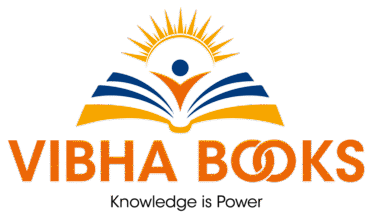LKG Books: The First Step Towards Formal Learning
LKG (Lower Kindergarten) is a critical stage in a child’s early education, usually for children aged 3 to 4 years. At this stage, children are introduced to structured learning, social interaction, and basic concepts that prepare them for higher grades. LKG books are carefully designed to support this transition, combining education with fun and creativity.
Purpose and Importance of LKG Books
LKG books aim to make learning enjoyable while introducing essential skills like reading, writing, counting, and understanding the world around them. Unlike nursery books, which primarily focus on familiarizing children with letters, numbers, and daily activities, LKG books take a step further by encouraging independent thinking, basic problem-solving, and self-expression.
These books also foster social and emotional development. Through stories, rhymes, and activities, children learn to share, cooperate, follow instructions, and express emotions appropriately. LKG books are therefore a bridge between home learning and more structured academic education.
Core Components of LKG Books
- Language Skills: LKG books introduce alphabets in uppercase and lowercase, simple words, and basic sentences. They focus on phonics, rhymes, and storytelling to enhance vocabulary, pronunciation, and listening skills. Activities like tracing letters and forming simple words strengthen writing skills.
- Mathematics: Early numeracy concepts are a key part of LKG books. Children learn counting, number recognition, basic addition and subtraction, shapes, sizes, and patterns. Fun exercises like connecting dots, matching numbers, and sorting objects help children grasp mathematical concepts visually and practically.
- Environmental Awareness: LKG books introduce children to the environment around them, including plants, animals, seasons, festivals, and community helpers. Through colorful illustrations and simple explanations, children develop curiosity and awareness about the world.
- Art and Creativity: Coloring, drawing, and craft activities in LKG books encourage creativity and self-expression. These exercises also improve fine motor skills and hand-eye coordination, essential for writing and other practical tasks.
- Moral and Social Values: LKG books often incorporate stories that teach kindness, sharing, honesty, and cooperation. These lessons help children understand emotions, develop empathy, and build positive relationships with peers.
- Interactive Activities: Modern LKG books include puzzles, games, stickers, and tracing activities. Such features make learning hands-on and engaging, helping children retain concepts effectively.
Design and Features of LKG Books
LKG books are visually appealing with bright colors, large fonts, and attractive illustrations. Each page is designed to be interactive, with exercises that encourage active participation. The content is structured to progress gradually, ensuring children gain confidence as they master each concept.
Some modern LKG books also integrate digital features like QR codes for audio stories, songs, or animated activities. This multi-sensory approach caters to different learning styles, whether visual, auditory, or kinesthetic, making learning enjoyable and effective.
Role of Teachers and Parents
Teachers use LKG books as a framework to plan lessons, introduce new concepts, and assess a child’s progress. Regular use of the textbook ensures children remain engaged, learn systematically, and develop foundational skills for higher grades.
Parents play a key role by reinforcing learning at home. Reading aloud, practicing counting, engaging in coloring or craft activities, and discussing stories from the books enhance understanding and retention. LKG books often provide guidance and activity suggestions for parents to make learning collaborative and enjoyable.
Benefits of LKG Books
- Structured Learning: Provides a clear sequence to gradually introduce letters, numbers, and concepts.
- Cognitive Development: Enhances memory, attention, problem-solving, and critical thinking skills.
- Creativity and Expression: Encourages drawing, coloring, and imaginative play.
- Social and Emotional Learning: Teaches cooperation, empathy, and emotional regulation.
- Confidence Building: Helps children gain independence and self-assurance in learning new skills.
Modern Trends in LKG Books
With the advancement of educational methods, LKG books now emphasize inclusivity, diversity, and environmental awareness. Stories and illustrations showcase different cultures, abilities, and lifestyles, fostering a sense of acceptance and understanding from a young age. Themes like recycling, nature, and healthy habits are also incorporated to instill responsibility and awareness about the world.
Digital integration has also become common. Audio stories, animated visuals, and interactive games in LKG books enhance engagement and cater to children who learn better through multimedia experiences.
Conclusion
LKG books are much more than educational materials; they are tools that nurture curiosity, creativity, and foundational skills in young learners. They introduce children to structured learning while keeping the process playful, interactive, and meaningful. By combining academic concepts with moral lessons, art, and interactive activities, LKG books prepare children for a smooth transition to UKG and primary school.
Investing in high-quality LKG books ensures children develop a strong foundation in literacy, numeracy, social skills, and creativity. When guided by attentive teachers and supportive parents, children not only gain knowledge but also develop a lifelong love for learning. LKG books are the first step on a child’s educational journey, shaping their growth, confidence, and curiosity for years to come.
